Related Research Articles

General Sir Michael David Jackson, was a British Army officer and one of its most high-profile generals since the Second World War. Originally commissioned into the Intelligence Corps in 1963, he transferred to the Parachute Regiment in 1970, with which he served two of his three tours of duty in Northern Ireland. On his first, he was present as an adjutant at the events of the Ballymurphy massacre (1971), where eleven unarmed civilians were shot dead by British troops, and then at Bloody Sunday in 1972, when British soldiers opened fire on unarmed protesters, killing fourteen. On his second, he was a company commander in the aftermath of the Warrenpoint ambush (1979), when the IRA killed 18 soldiers with two roadside bombs, the British Army's heaviest single loss of life during the Troubles. He was assigned to a staff post at the Ministry of Defence (MoD) in 1982 before assuming command of the 1st Battalion, Parachute Regiment, in 1984. Jackson was posted to Northern Ireland for the third time, as a brigade commander, in the early 1990s.
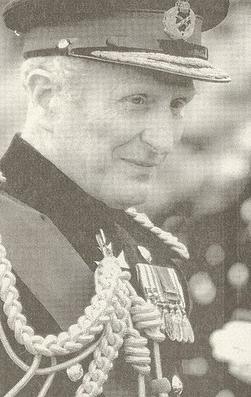
Field Marshal Sir Nigel Thomas Bagnall, was a career British Army officer who served as Commander-in-Chief of the British Army of the Rhine, from 1983 to 1985, and then as Chief of the General Staff (CGS), the professional head of the British Army, from 1985 to 1988. Early in his military career he saw action during the Palestine Emergency, the Malayan Emergency, the Cyprus Emergency and the Indonesia–Malaysia confrontation, and later in his career he provided advice to the British Government on the future role of Britain's nuclear weapons.

James Hamilton, 5th Duke of Abercorn,, styled Viscount Strabane until 1953 and Marquess of Hamilton between 1953 and 1979, is a British peer, courtier and politician.

Field Marshal Michael John Dawson Walker, Baron Walker of Aldringham, is a retired British Army officer. Commissioned in 1966, he served in Cyprus, Northern Ireland, and in a variety of staff posts in the United Kingdom until 1984. After being given command of a battalion, he was mentioned in despatches for his service during a second tour of duty in Northern Ireland, this time in Derry, and subsequently served a tour on Gibraltar. He was promoted to brigadier, unusually having never held the rank of colonel, and took command of 20th Armoured Brigade in Germany before becoming I Corps chief of staff.
An equerry is an officer of honour. Historically, it was a senior attendant with responsibilities for the horses of a person of rank. In contemporary use, it is a personal attendant, usually upon a sovereign, a member of a royal family, or a national representative. The role is equivalent to an aide-de-camp, but the term is now prevalent only among some members of the Commonwealth of Nations.
Sir Terence Orby Conran was a British designer, restaurateur, retailer and writer. He founded the Design Museum in Shad Thames, London in 1989. The British designer Thomas Heatherwick said that Conran "moved Britain forward to make it an influence around the world." Edward Barber, from the British design team Barber & Osgerby, described Conran as "the most passionate man in Britain when it comes to design, and his central idea has always been 'Design is there to improve your life.'" The satirist Craig Brown once joked that before Conran "there were no chairs and no France."
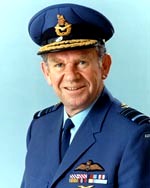
Air Marshal Sir James Anthony Rowland, was a senior commander in the Royal Australian Air Force (RAAF), serving as Chief of the Air Staff (CAS) from 1975 to 1979. He held office as Governor of New South Wales from 1981 to 1989, and was Chancellor of the University of Sydney from 1990 to 1991.

David Hubert Boothby Chesshyre was a British officer of arms.

General Francis Richard Dannatt, Baron Dannatt, is a retired senior British Army officer and member of the House of Lords. He was Chief of the General Staff from 2006 to 2009.

Air Chief Marshal Sir Neville Patrick McNamara, was a senior commander of the Royal Australian Air Force (RAAF). He served as Chief of the Air Staff (CAS), the RAAF's highest-ranking position, from 1979 until 1982, and as Chief of the Defence Force Staff (CDFS), Australia's top military role at the time, from 1982 until 1984. He was the second RAAF officer to hold the rank of air chief marshal.

Lieutenant General Sir Reginald George Pollard, was a senior commander in the Australian Army. He served as Chief of the General Staff from 1960 to 1963.
The Royal Households of the United Kingdom are the collective departments that support members of the British royal family. Many members of the royal family who undertake public duties have separate households. They vary considerably in size, from the large household that supports the sovereign to the household of the Prince and Princess of Wales, with fewer members.
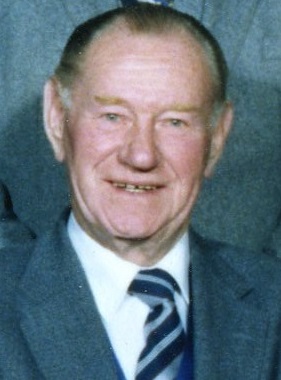
Sir James George Barnes was a New Zealand politician of the National Party.
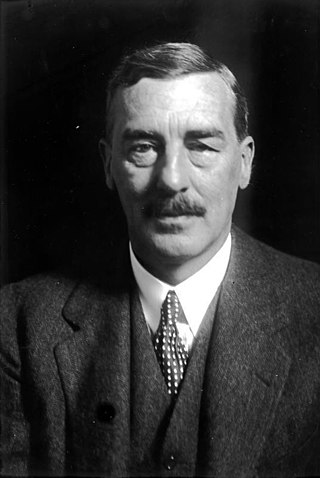
Sir Ronald Charles Lindsay was a British diplomat. He was Ambassador to Turkey from 1925 to 1926 and to Germany from 1926 to 1928, Permanent Under-Secretary for Foreign Affairs from 1928 to 1930 and Ambassador to the United States from 1930 to 1939.

General Sir Peter Anthony Wall, is a retired British Army officer who served as the Chief of the General Staff, the professional head of the British Army, until September 2014. Wall had previously been the Commander-in-Chief, Land Forces from August 2009 to September 2010. He succeeded General Sir David Richards as Chief of the General Staff in September 2010, the latter going on a month later to be Chief of the Defence Staff.
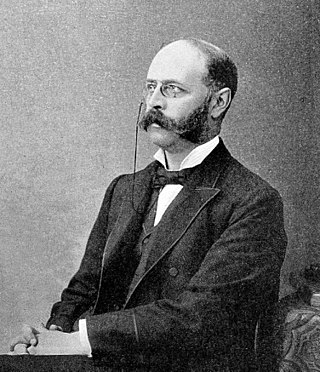
Sir James Reid, 1st Baronet was a British doctor who served as physician-in-ordinary to three British monarchs: Queen Victoria, King Edward VII and King George V.

Air Chief Marshal Sir Stephen John Hillier, is a retired senior Royal Air Force officer, who served as Chief of the Air Staff from 2016 to 2019. He was awarded the Distinguished Flying Cross for actions in the Gulf in 1999 and was awarded the United States Bronze Star Medal for service in the Iraq War. He went on to be Air Officer Commanding No. 2 Group, Director Information Superiority at the Ministry of Defence, Deputy Chief of the Defence Staff (Capability) and finally Chief of the Air Staff from July 2016. He was appointed chair of the Civil Aviation Authority in 2020.
Sir John Alan Shepherd, is a retired British diplomat.
As part of the British honours system, Special Honours are issued at the Monarch's pleasure at any given time. The Special Honours refer to the awards made within royal prerogative, operational honours, political honours and other honours awarded outside the New Years Honours and Birthday Honours.
References
- 1 2 "Brown, Sir Stephen (David Reid)", Who's Who (online ed., Oxford University Press, December 2018). Retrieved 15 July 2019.
- ↑ The London Gazette , 1 April 1980 (issue 48146), p. 5006.
- ↑ The London Gazette , 28 May 1999 (notice L-55498-1SI).
- ↑ "Queen Elizabeth visits South Korea", Associated Press , 20 April 1999. Retrieved 15 July 2019.